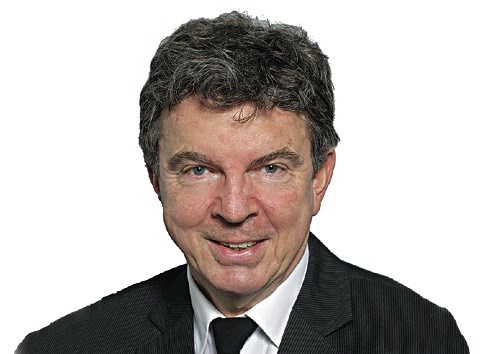Bill Bennett, the minister responsible for the core review of government operations, sounds like a dentist when describing the process.
As in: “This won’t hurt a bit.”
He was the soul of reassurance and compassion while explaining the B.C. Liberals’ second effort in 12 years to rethink government. That’s because as far as the bureaucracy is concerned, the first one turned into a dragon that struck fear into the hearts of everyone who encountered it.
The idea the first time around was to take a searching look at everything government does and ask if it was essential, affordable and producing measurable results.
It produced all kinds of upheaval on the government flow charts. (My favourite was when they fired the entire board of directors of the PNE, right in the middle of the fair.)
Numerous offices and functions disappeared as the government was downsized by about 25 per cent, mostly by way of voluntary buyouts.
Bennett was clear in the legislature that the upshot of the latest review won’t be nearly as drastic.
The target they have in mind is $50 million in savings in each of the next two years. (Another $30 million is supposed to come from general belt-tightening in the current year.)
That doesn’t sound like much, but $50 million is about 30 per cent of the government’s margin when it comes to balancing the budget.
Regardless, the focus won’t be on dollars and cents, he said. “It will be more around how a ministry delivers the services ... Are there better ways to deliver those services?”
If they find better ways, the money saved will be a byproduct. And the savings may wind up simply being spent somewhere else, where it would be more effective, he said.
The big distinction between the two efforts in Bennett’s mind is that the first one had a lot of low-hanging fruit to pick off. He said it produced $1 billion in savings, and the current effort won’t come anywhere near that.
B.C. Liberals whittled the civil service down to about 28,000 jobs, and have been fairly successful at keeping that work force from growing.
“Because the circumstances are so different this time around, we would expect not to find as many dollars. We’re going to focus more on the mandates and how things are done. Cost is part of it, but not the main focus.”
The terms of reference are to be released next month.
Bennett said he wants to bring external groups like non-profits and business organizations into the process, but isn’t clear on how.
“We know that in terms of finding better ways to do things, you’re not always going to find those better ways by asking the people that are doing the things.”
He said they have to make sure “that it isn’t purely elected people on this side of the house and public servants doing the review.”
Pressed for details by New Democrat MLA Shane Simpson, Bennett said: “If the member needs some assurance from me ... that we’re not out to hurt people, I can certainly provide that assurance.”
The exercise gets rolling next month with the release of the terms of reference. A parliamentary secretary — Liberal MLA Dan Ashton — has been named to help lead the team.
Based on an hour or so of questioning, it’s still a bit hazy.
Premier Christy Clark was somewhat clearer last month when talking to media in Kamloops.
“We’re going to go through, line by line, every ministry of government and think about the things that are essential to providing good service to people in a society that’s fair, where we care about each other, and then think about the things that we don’t need to do anymore.”
She said there’s a need to focus resources, because “we only have so much money from the public, and I’m determined not to go back and ask for more.
“We’d better figure out how we can focus our resources and do things better, which means we need to probably start doing fewer things.”



